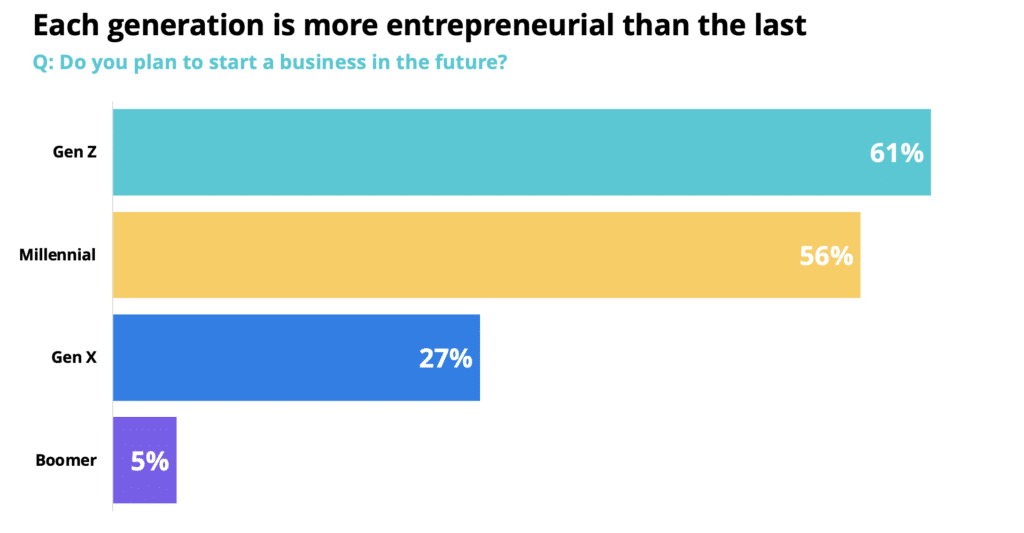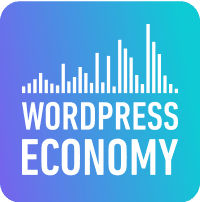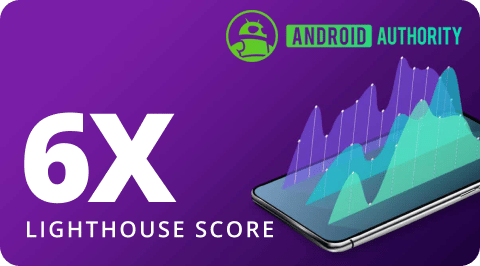

Generation Rise: A New Digital Paradigm Has Begun
Digital channels have served as a critical lifeline throughout the pandemic, fueling a collective global response filled with themes of resilience and renewal.
As this online migration has played out, people across every generation have relied on digital channels for new ways to respond to the pandemic, and in many cases, bounce back from its initial shock.
With these widespread shifts as a backdrop, “Generational Resilience,” the fourth annual study commissioned by WP Engine and conducted by The Center for Generational Kinetics (CGK), examines new and prevailing expectations for digital held by different generations of web users.
The report was crafted with marketers, strategists, and business leaders across every industry in mind, and offers key insights into the identifying behaviors and preferences of all generations, playing out in today’s digital landscape.
Download the ebook or keep reading for an excerpt of the full report
Rising Higher: A New Digital Paradigm Has Already Begun
As every generation finds its new footing, members of each are wasting little time in exercising their entrepreneurial spirit. Building new businesses and tapping into the digital channels that have become second nature is of clear interest across the generations, with entrepreneurial zeal increasing the younger they are.
Entrepreneurial Optimism, Despite It All
Even as the pandemic has slowed economic growth the world over, younger generations, to their credit, have not been dissuaded from their business goals.
Call them dreamers or label them naive, but the youngest age groups sampled in our research made it clear that they weren’t satisfied with resilience or rebuilding in the face of the pandemic— when it comes to building a business, younger generations are setting their sights higher than ever before.
Every generation we surveyed was more entrepreneurial than the generation before them, with Gen Z leading the way. 61% of these respondents, followed closely by 58% of Millennials, said they planned to start a business in the future.

Older generations showed less of an interest in creating a new business, with only 27% of Gen X saying they had plans for a future business venture. While only 5% of Baby Boomers responded the same, this cohort, as noted above, includes many retirees and others close to retirement, rendering new business creation a less relevant pursuit.
Even then, there are interesting takeaways when we examine the types of new businesses each generation is gravitating towards, and the way those preferences have changed in two short years.
In 2019, 30% of Baby Boomers expressed interest in starting a retail business. That stat has now flipped, with nearly a quarter expressing interest in real estate. For Gen X, the shift has been less pronounced, with retail remaining their top choice. However, the rise of technology as an area of interest for this generation is certainly of note.
Millennials have actually replaced retail with technology as their primary industry of interest, signaling this generation’s increased confidence and familiarity within the digital world.
In a surprising twist, Gen Z appears to have moved past technology, shifting to entertainment as the primary type of business they’re interested in starting. These changes no doubt are connected to the generational preference between information and entertainment noted above, with a clear connection between Gen Z’s online behavior and their professional aspirations.
Skyrocketing Website Ownership
In a similar vein, the overall acceleration to digital has pushed every generation to embrace technology in some way, no matter what type of business they may be powering with it.
This is clearly visible in the surge of website ownership over the past two years, which has increased more than 300% across every generation.

This growth is on full display among younger generations, where 37% of Gen Z and 50% of Millennials now own a website.
Businesses should take heed here too, and understand that many of the visitors to their sites are also site owners themselves. With that in mind, site performance and optimal user experience are no longer something that can be swept under the rug.
Your users know better, and they are not only more likely to notice mediocrity, they are more inclined to view it in a negative light.
WordPress is the Leader in Website Creation
Behind much of the growth in website ownership and ongoing web innovation is WordPress, which has long played a major role as an open source, content management system (CMS). It now sits atop its respective market as the best way to empower all digital creators with a wide array of tools and options for functionality.
Since its launch in 2003, WordPress has grown from a simple, HTML-based platform that was first popular among bloggers to become the dominant type of site on the internet, and the most popular way to build websites around the world.
WordPress is currently used by more than 40% of all websites and more than 35% of the top 10,000 most popular sites in the world by traffic. At 64.9%, its market share is far greater than all of its competitors combined.
Throughout the pandemic, WordPress has served as a driving force, fueling a massive ecosystem of makers, builders, and entrepreneurs across every generation, and helping them rise higher by allowing them to meet the inherent challenges of evolving technology head-on.
One key factor behind WordPress’ monumental rise is the flexibility and true site ownership it provides, which is a stark contrast from closed, proprietary platforms. Because it’s built with open source code, WordPress is highly integratable, and users can freely build upon its core software.
This is an attribute that not only resonates with younger generations; it speaks to older age groups as well. Ease of use, cost-savings, and a low barrier to entry are all attractive characteristics that each generation values, even if they come to it based on different requirements and perspectives.
With a vibrant community that’s grown around it, WordPress also inspires a deeper personal connection than many of its closed, proprietary counterparts. Beyond the thousands of developers and engineers who have contributed to WordPress Core over the years, the larger WordPress community comprises a diverse group of web professionals, business owners, and educators (to name a few), and the wide contingent of theme and plugin authors who have all fostered an incredible ecosystem that supports WordPress sites.
As members of every generation look to rebuild and rise higher from the uncertainty that marked the pandemic, WordPress offers a clear road forward which many of them, regardless of age, are increasingly noticing.
Read the full report to find out more!
Fuel the freedom to create with WP Engine
WP Engine powers the freedom to create on WordPress. The company’s products, the fastest among all WordPress providers, power 1.5 million digital experiences. More of the top 200,000 sites in the world use WP Engine to power their digital experiences than anyone else in WordPress.
About WP Engine
WP Engine, the WordPress technology company, provides the most relied upon and trusted brands and developer-centric WordPress products for companies and agencies of all sizes, including managed WordPress hosting, enterprise WordPress, headless WordPress, Flywheel, Local, and Genesis. WP Engine’s tech innovation and award-winning WordPress experts help to power more than 1.5 million sites across 150 countries.











